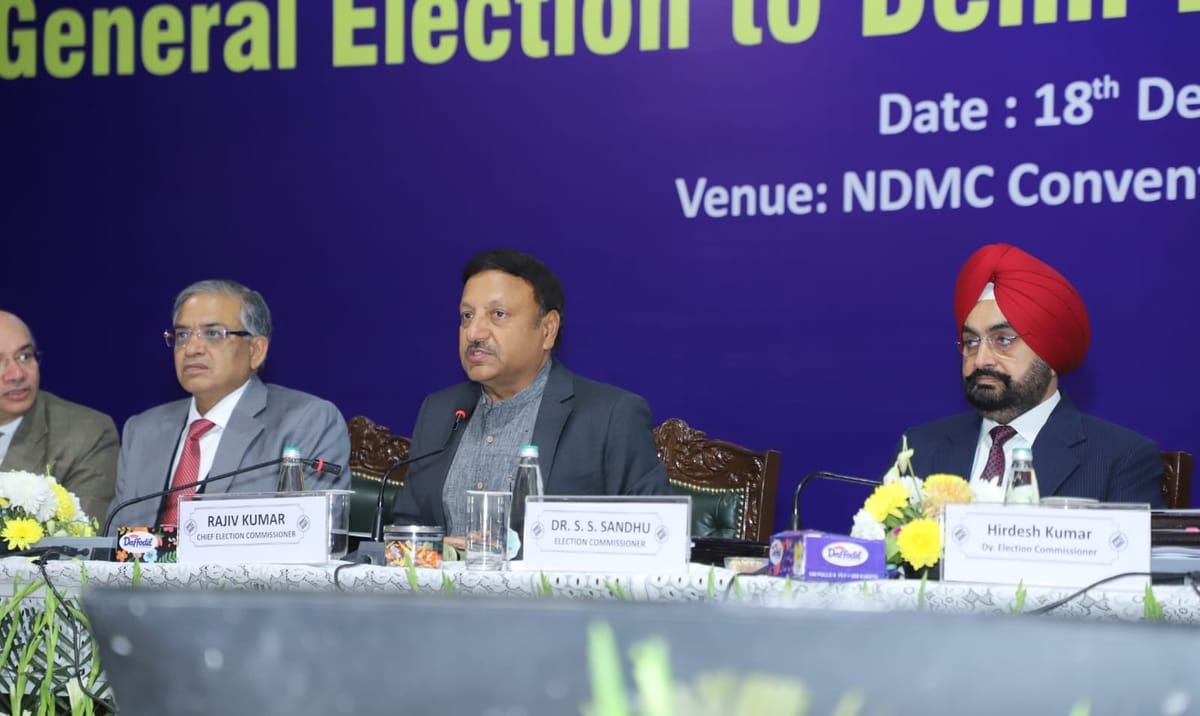
Chief Election Commissioner (CEC) Rajiv Kumar defended the Election Commission of India's (ECI) decision not to share CCTV footage from polling booths with the public and candidates. Kumar was addressing the media on Tuesday at a press conference, which was held primarily to announce the date of Delhi assembly polls.
Countering accusations of thwarting transparency in the context of the amendment of Rule 93 (2)(a) of the 1961 Conduct of Election Rules, Kumar explained that constitutionally the ECI cannot offer any material evidence that would jeopardise the identity of the voter.
The Centre had brought in the amendment after the Haryana and Punjab High Court ordered the ECI to share video footage of the polling process with a petitioner by treating CCTV footage as election related documents.
Earlier, in the pre-cyber era, the rule only mentioned poll documents and by bringing in the amendment, the Centre restricted the public's access to CCTV footage of the voting process.
Kumar said there have been previous examples of misuse of footage from polling stations and the Commission is wary of the video footage from polling booths being used for machine learning processes that could result in AI-generated fake videos of actual voters.
Freebies
Speaking on the issue of freebies, Kumar said that it is extremely difficult to define freebies as some claim them as their rights. The Court has already formed a committee to formulate the definition for freebies and the Commission shall await its deliberations. However, he said political parties should declare the state's debt-to-GDP ratio to give the voters a more transparent understanding of the state's fiscal situation to assess whether the distribution of 'freebies' is feasible.
Remote voting
Remote voting could become a possibility if there is political consensus. The ECI will seek out technological solutions for remote voting in an attempt to promote greater voter participation in polls. But it would be possible only if there is a political consensus, pointed out Kumar.
Electronic Voting Machines
Speaking at length on allegations of Electronic Voting Machines (EVMs) getting hacked to benefit a particular political party, Kumar pointed out that the Indian judiciary has ruled 42 times in favour of the EVMs. The process of election cannot be judged by results, he added.
Cybersecurity
He agreed that cybersecurity issues are of primary concern for the Commission, but did not disclose the intensity or instances of such challenges citing national security reasons.
The CEC chose not to answer a question on 'One Nation, One Election'.

